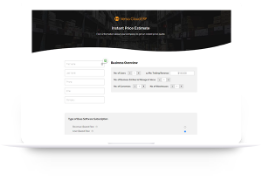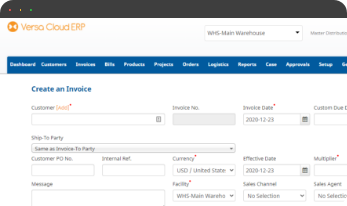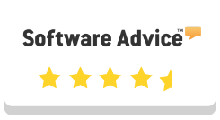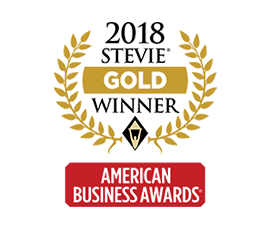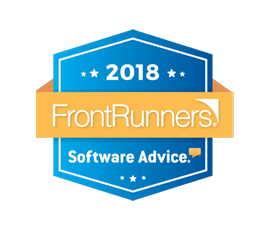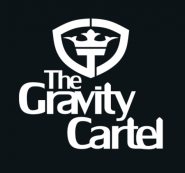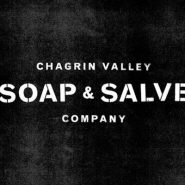COGS, short for Cost of Goods Sold, stands out as a critical accounting concept essential for business leaders to grasp. It encompasses all the direct expenses linked to manufacturing products. Mastering COGS and effectively overseeing its elements can determine whether a business operates profitably or finds itself in a cycle of stagnation
What is the Cost of Goods Sold or COGS and how is it calculated?
Cost of Goods Sold (COGS) is a crucial accounting metric that represents the direct costs incurred by a business in producing or purchasing the goods it sells to customers during a specific accounting period, typically a month, quarter, or year.
Calculating COGS involves summing up the direct costs associated with producing or acquiring inventory during the accounting period. The formula for calculating COGS is:
COGS = Beginning Inventory + Purchases or Production Costs – Ending Inventory
In the above formula:
- The Beginning Inventory is the value of inventory at the beginning of the accounting period.
- Purchases or Production Costs represent the cost of additional inventory purchased or produced during the period.
- Ending Inventory is the value of inventory at the end of the accounting period.
Subtracting Ending Inventory from the sum of Beginning Inventory and Purchases or Production Costs yields the cost of goods that were sold during the period.
COGS is a key component in calculating a business’s gross profit and gross margins. Gross profit is calculated by subtracting COGS from total revenue. And Gross Margin is Gross Profit divided by Revenue. This provides insight into the profitability of a company’s core operations.
Accurately tracking COGS is essential for businesses to determine their profitability, set pricing strategies, and make informed decisions regarding inventory management and production efficiency.
What is Included in the Cost of Goods Sold?
COGS includes several components:
1. Direct Materials: These are the raw materials and components used in the manufacturing process to create finished goods. Direct materials can include items like wood, metal, fabric, plastic, or any other materials directly incorporated into the final product.
2. Direct Labor: Direct labor refers to the wages and benefits paid to employees directly involved in the production process. This includes assembly line workers, machine operators, and other personnel directly responsible for manufacturing the goods.
3. Manufacturing Overhead: Manufacturing overhead comprises indirect costs associated with the production process that cannot be directly attributed to specific units of output. These costs include items such as factory rent, utilities (electricity, water, gas), depreciation of manufacturing equipment, maintenance expenses, and indirect labor (supervisory salaries, quality control personnel). While these costs are necessary for production, they do not vary directly with the number of units produced.
Here is a list of costs that are considered/included in the calculation of Cost of Goods Sold (COGS):
- Raw materials: Basic materials or components used in the manufacturing process to create finished goods.
- Items purchased for resale: Products acquired from suppliers to resell to customers without further processing.
- Freight-in costs: Expenses incurred for transporting goods purchased from suppliers to the buyer’s location.
- Purchase returns and allowances: Amounts refunded to customers or deductions made from accounts payable for returned or defective merchandise.
- Trade or cash discounts: Reductions in the purchase price offered by suppliers for early payment or other negotiated terms.
- Factory labor: Wages and salaries paid to employees directly involved in the manufacturing process, including assembly line workers, machine operators, and supervisors.
- Parts used in production: Components, sub-assemblies, or parts consumed during the manufacturing process to produce finished goods.
- Storage costs: Expenses related to storing raw materials, work-in-progress inventory, or finished goods, including rent, utilities, insurance, and depreciation of storage facilities.
- Factory overhead: Indirect manufacturing costs not directly attributable to specific products or units of production, such as rent for factory space, utilities, equipment depreciation, maintenance, and indirect labor costs.
Can some costs be excluded from COGS? The answer is Yes! These may include general and administrative expenses and selling expenses:
1. General and Administrative Expenses:
- Salaries and Wages
- Rent
- Utilities
- Office Supplies
- Insurance
- Legal and Professional Fees
2. Selling Expenses:
- Sales Commissions
- Advertising and Marketing
- Sales Promotion
- Packaging
- Shipping and Delivery
- Sales Salaries and Wages
Relationship between Cost of Goods Sold (COGS) and Inventory
Cost of Goods Sold (COGS) represents the direct expenses incurred in producing or acquiring goods sold by a business during a specific period, encompassing raw materials, direct labor, and manufacturing overhead.
Inventory, on the other hand, constitutes the goods held by a company for sale or production, encompassing raw materials, work-in-progress, and finished goods.
The relationship between COGS and inventory is crucial, as COGS is calculated by subtracting the ending inventory from the sum of the beginning inventory and purchases. Managing inventory effectively ensures optimal COGS control, helping businesses maintain profitability by avoiding stockouts and excess inventory. Through accurate tracking and strategic decision-making, businesses can optimize inventory levels, reduce costs, and enhance financial performance.
Versa Cloud ERP and Cost of Goods Sold (COGS)
Calculating COGS poses significant challenges, demanding meticulous record-keeping for GAAP reporting on financial statements and tax returns. Precise inventory management, covering both physical counts and valuation methods, is essential, with thorough tracking of purchases and production costs throughout the year. This complexity only amplifies with growing volumes and product lines, particularly for companies managing numerous SKUs.
Utilizing a robust system like Versa Cloud ERP with an inbuilt accounting feature and inventory management feature gives businesses access to crucial information necessary for navigating these intricacies. Understanding COGS and its components is paramount for achieving and sustaining profitability, offering insight into the true cost of a company’s products, and guiding pricing strategies for optimal unit margins. As businesses evolve, an integrated accounting system with inventory management software streamlines COGS calculations, mitigating complexity and ensuring accuracy.
Effectively manage your financials, accounting, inventory, production, and warehouse management workflows with our award-winning ERP.
Let Versa Cloud Erp’s do the heavy lifting for you.
Empower your business with the knowledge to navigate the realm of an Integrated ERP solution. Gain insights, streamline processes, and propel your accounting management to new heights with this comprehensive guide.
With Versa Cloud ERP’s Implementation guide learn how a business can ensure a successful ERP Solution Implementation. Navigate the complexities of implementation with confidence!
A Small Business in the modern day with Omnichannel Retail is complex and requires resources to deliver on its goals and achieve its full potential. To create a small business success story business owners need an ERP Solution that grows with them.
Do Business on the Move!
Make your businesses hassle-free and cut the heavyweights sign up for the Versa Cloud ERP today!!
Join our Versa Community and be Future-ready with us.

